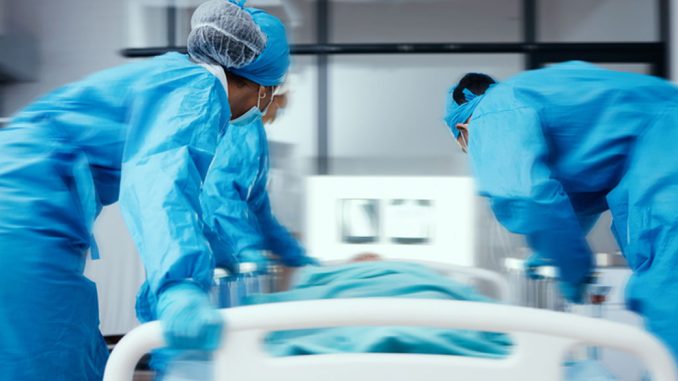
The Criticality of Health Actions Post-Accident
A car accident, regardless of its severity, can be a disorienting and traumatic experience. While the immediate focus often lies on dealing with the aftermath of the accident itself, such as vehicle damage and insurance claims, prioritizing health and medical care is crucial. In the wake of an accident, certain health and doctor-related actions are essential to ensure that any injuries, whether apparent or hidden, are properly addressed. This article outlines the most important steps to take from a health perspective following a car accident.
- Immediate Medical Evaluation
Even if you feel fine, it’s critical to seek a doctor after an accident. Some injuries, especially internal ones, may not present immediate symptoms but can have serious consequences if left untreated. A healthcare professional can conduct a thorough evaluation to rule out any potential injuries. This step is also vital for documenting any health issues caused by the accident, which can be crucial for insurance and legal purposes.
- Follow-Up Appointments
If injuries are identified, follow-up appointments are key to a successful recovery. These appointments allow doctors to monitor your progress and make necessary adjustments to your treatment plan. Skipping follow-up visits can impede your recovery and may also affect any claims related to the accident.
- Be Aware of Delayed Symptoms
Some symptoms, such as those from whiplash or concussions, may not appear immediately. Be vigilant in the days and weeks following the accident and seek medical attention if you notice any new or worsening symptoms. Common delayed symptoms include headaches, dizziness, numbness, or changes in mood or behavior.
- Documenting and Reporting All Injuries
Ensure that all injuries, no matter how minor they seem, are documented by a healthcare professional. This documentation is not only important for your health records but also serves as evidence if you need to make an insurance claim or take legal action.
- Specialist Consultations if Required
Depending on the nature of your injuries, you may need to consult with specialists. This could include orthopedists, neurologists, or physical therapists. Specialist care ensures that you receive targeted treatment for specific injuries, which can lead to better recovery outcomes.
- Physical Therapy and Rehabilitation
For many car accident injuries, physical therapy is a crucial part of the recovery process. It helps in restoring strength, flexibility, and range of motion. Adhering to a prescribed physical therapy program can significantly shorten recovery time and improve the quality of recovery.
- Mental Health Considerations
The impact of a car accident isn’t limited to physical injuries. Many individuals experience emotional and psychological effects, such as stress, anxiety, or post-traumatic stress disorder (PTSD). It’s important to address these aspects of your health as well. Consulting with a mental health professional can be vital in dealing with these emotional aftereffects.
- Communicating with Your Primary Care Physician
Keep your primary care physician informed about the accident and your subsequent medical care. They can provide additional support and coordinate with specialists to ensure a comprehensive approach to your recovery.
- Understanding and Managing Medications
If you are prescribed new medications following the accident, ensure you understand their purpose, dosage, and potential side effects. Managing these medications properly is important for your recovery. Always discuss any concerns or side effects with your doctor.
- Healthy Lifestyle Choices
Adopting healthy lifestyle choices can aid in your recovery. This includes a balanced diet, adequate hydration, sufficient sleep, and avoiding alcohol and tobacco. A healthy body can cope better with the stress of injuries and can heal more efficiently.
- Seeking Legal Advice
If your accident was due to someone else’s negligence, seeking legal advice can be important. A legal professional can guide you on how to proceed with insurance claims or potential litigation, especially in cases where long-term care or loss of income is involved.
- Continuous Monitoring and Self-Care
Stay vigilant about your health in the long term. Some injuries may have lingering effects or lead to other health issues. Regular check-ups and being attentive to your body’s signals are crucial.
Prioritizing Health After a Car Accident
While dealing with the immediate aftermath of a car accident is important, the paramount focus should be on prioritizing your health and medical care. This approach begins with an immediate medical evaluation to detect any injuries, followed by diligent ongoing treatment. Monitoring for delayed symptoms is crucial, as some injuries manifest later and can have significant long-term effects. Equally important is addressing both physical and mental health, recognizing that the trauma of an accident can have emotional and psychological repercussions. Proactive engagement in your healthcare, such as adhering to prescribed treatments and therapies, plays a vital role in your recovery journey. Additionally, maintaining detailed records of all medical consultations, treatments, and related expenses is indispensable. These records are crucial not only for personal tracking but also for providing essential documentation in legal and insurance contexts. By staying informed and actively involved in your healthcare decisions, you can significantly enhance your recovery process. Ultimately, these comprehensive health and medical measures are key to safeguarding your well-being, ensuring that you emerge from the accident’s aftermath as healthily and swiftly as possible.

Leave a Reply